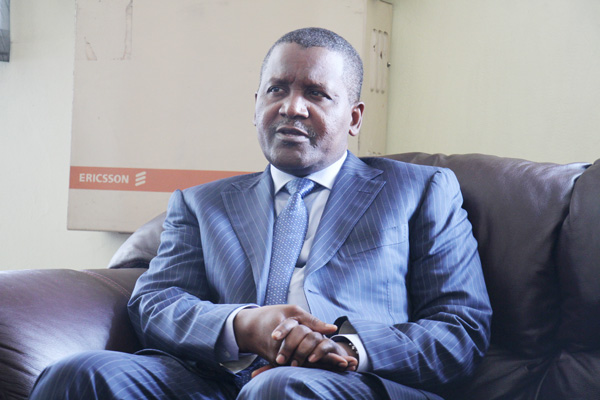
After more than three decades of President Robert Mugabe’s iron-fisted rule, Zimbabweans now look forward to a better future without the 91-year-old strongman.
by Khulani Nkabinde
Mugabe’s rule since the country gained independence from Britain in 1980, has brought about untold suffering, poverty and mass exodus of Zimbabweans seeking greener pastures in other countries, with above 3 million of them living in neighbouring South Africa.
Mugabe’s regime has been accused of gross human rights abuses.
Time, however, seems to be ticking away for Mugabe, who at 91 is in the twilight of his life. Many Zimbabweans remain hopeful that once Mugabe is out of the way — through resignation or otherwise — life would return to normal and the mineral- rich country may be restored to prosperity.
Currently, the country faces a litany of problems including debilitating power cuts lasting up to 18 hours a day, water shortages as well as an unemployment rate at a staggering 80%.
“I am of the opinion that President Mugabe is the stumbling block to the nation’s progress,” said James Moyo, a Zimbabwean who lives in South Africa. “All these years, he and his cabal have been looting the country’s resources and have been implementing controversial policies that have driven away investors.”

Analysts strongly believe that the post-Mugabe period will see Zimbabwe prosper, as indicated by various individuals and countries showing a sudden interest in investing in the country. One such individual is Nigerian tycoon, Aliko Dangote, who flew into Harare in September and pledged to invest $400 million in setting up a cement plant, coal mine and power station.
- Chamisa under fire over US$120K donation
- Mavhunga puts DeMbare into Chibuku quarterfinals
- Pension funds bet on Cabora Bassa oilfields
- Councils defy govt fire tender directive
Keep Reading
“We had a very good meeting with the President [Mugabe] and I told him that we decided to invest in the three areas, one is power, second one is cement and third one is coal,” Dangote said after meeting Mugabe.
President Mugabe also reportedly assured Dangote that his investments would be secure despite the country’s controversial indigenisation laws that force foreigners to cede 51% shareholding in their companies to locals.
Dangote’s investments are expected to be operational as early as next year.
“The ultimate exit of Mugabe from Zimbabwe’s political arena could bring about an economic boom in Zimbabwe, because the country has a great potential to rise again. An educated analysis reveals a correlation between human rights and economic development. As we may know, Mugabe’s human rights record is widely discussed as the precursor for the dramatic collapse of Zimbabwe’s economy,” said Zimbabwean academic, Admore Tshuma, a Social Justice expert who is now based in the United Kingdom.
“However, we should only pin our hopes on the fact that whoever will succeed Mugabe will start by creating a modicum of legal transparency and a good human rights culture as a means of repairing the economic damage. By examining the important synergies between the economy and human rights, it becomes clear that those trying to repair their ailing economies should first consider human rights in their work. In the context of Mugabe’s exit, an independent church-led Truth Commission will be effective in trying to resuscitate the Mugabe-ravaged economy, because it is such a platform that would reveal what happened under Mugabe’s stewardship and assure the world that a human rights culture can be re-established.”
Political analyst, Anglistone Sibanda feels that there is need for Zimbabwe to set-up strong political institutions to avoid another episode reminiscent of Mugabe’s despotic rule.
“The prosperity of Zimbabwe has to be anchored on stronger democratic institutions apart from changing Mugabe’s face. Even if Joice Mujuru [ex-Vice President] or Morgan Tsvangirai [opposition leader] takes over, there is need for stronger systems of checks and balances so that they do not get a chance to become Mugabes. It will call for serious reforms in the security sector, media and local governance,” said Sibanda.
Independent political and social commentator, Bekezela Maduma Fuzwayo agreed and said there would be need for a new political culture in Zimbabwe after Mugabe in order to attract the much-needed foreign investment.
“Any serious investor will realise the need for open, democratic governance and not only banking on Mugabe’s going, but hoping on a new Zimbabwe under a new governance set up altogether,” said Fuzwayo.
Meanwhile, a United States public policy expert says business relations between the US and Zimbabwe can be redefined in the context of the extended Africa Growth and Opportunity Act (Agoa).
“I have always seen Zimbabwe as a country of great potential. We should look for new ways to communicate and understand each other,” the US Embassy in Harare quoted Witney Schneidman in a statement released in September. Schneidman cited the country’s educated population, natural resources and great infrastructure.
“What has been important is understanding Zimbabwe’s competitiveness and encouraging business to speak with a voice that can help government think through the tough challenges of economic development to attract other businesses into the country. Nobody is a better reference for investing in Zimbabwe than people who are doing business here,” he said, cementing hopes among Zimbabweans that better prospects lie ahead for them.











